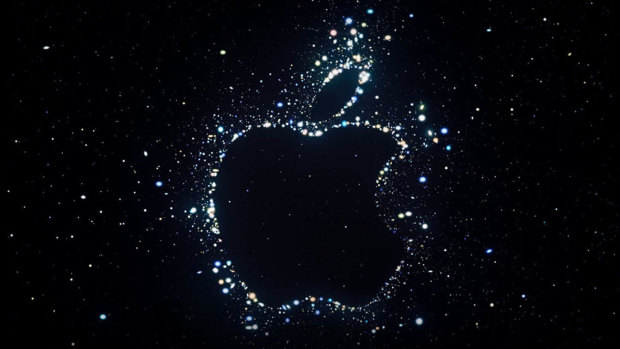
Apple (AAPL) -) has always striven to set itself apart from its peers. The tech giant, whose executives very obviously avoided using the term "artificial intelligence" at the company's developer conference in June, prefers to create hype, rather than hitch their wagon to existing hype.
That doesn't mean that Apple doesn't use AI. It just calls it something else: machine learning, which is simply a subset of the broader AI category. The company's latest product, the spatial computing Vision Pro, is loaded with machine-learning technology. Apple iPhones are similarly loaded with machine-learning algorithms, which is present in everything from Face ID to battery usage data, photos, keyboard suggestions and maps.
DON'T MISS: Wedbush's Dan Ives Thinks One Company Will Be Worth $4 Trillion by 2025
Still, Apple has been seemingly reluctant to jump into the generative AI game that its peers -- Google, Microsoft, Meta -- have been pushing so aggressively since the launch of ChatGPT last year. While the other tech giants have engaged in an AI arms race to develop and deploy consumer-facing generative AI, Apple has been publicly content to use AI technology without developing a competing Large Language Model (LLM).
But behind closed doors, though, Apple has been working on developing that very same generative AI tech.
Bloomberg reported Wednesday that Apple has been building a framework to support LLMs called Ajax; the company has also built and internally deployed a service similar to ChatGPT that some of its engineers referred to as "Apple GPT."
The company is aiming to release a consumer-facing generative AI product next year.
More Artificial Intelligence:
- Here's the Steep, Invisible Cost Of Using AI Models Like ChatGPT
- Artificial Intelligence Isn't Going to Kill Everyone (At Least Not Right Away)
- The Company Behind ChatGPT Is Now Facing a Massive Lawsuit
Apple did not respond to TheStreet for a request for comment.
How Apple Does Things Differently
Though Apple is coming late to the game, the product that will be unveiled to consumers will likely be much tighter than those models that were rushed into deployment by anxious execs at Google and Microsoft.
Apple is the biggest company in the world. The reason, according to Warren Buffett, is that Apple has built an enormously powerful and loyal consumer base.
"Apple has a position with consumers where they’re paying 1,500 bucks for a phone, and these same people pay $35,000 for having a second car," Buffett said in May. "And if they had to give up their second car or give up their iPhone, they give up their second car. It’s extraordinary.”
It was clearly an active decision on Apple's part to not jump into the generative AI arms race. That low and slow approach to building an AI model cannot possibly hurt the end result.
I don't see Apple's late entry into the space hurting the company's growth potential here -- Apple, as Buffett has noted, has a huge, extremely loyal consumer base that stretches across iPhones, iPads, smartwatches and laptops. The opportunity for ease of integration across Apple's suite of products could easily make something like ChatGPT unnecessary to a huge swathe of people, especially if these other options remain bogged down with issues, inaccuracies and hallucinations.
And ease of integration will be the key to everyday adoption.
A recent study found that, between March and June, ChatGPT's behavior has changed radically, and its accuracy has dipped; GPT-4 was good at identifying prime numbers in March, but in June, the chatbot's accuracy tumbled to around 2%.
"Absolutely stunning instability," AI expert Dr. Gary Marcus tweeted. "Who in their right mind would rely on a system that could be 97.6% correct on a task in March and 2.4% correct on same task in June? Important results. Anyone planning to rely on LLMs, take note."
Google's Bard, meanwhile, was heavily criticized just a few months ago by Google's own engineers, who called the chatbot a "pathological liar" and "worse than useless."
And though ChatGPT became the fastest-growing site in history -- before Meta launched Threads, of course -- the chatbot's usage has begun declining. Traffic dropped 10% in June, according to Similarweb. And paying users, meanwhile, have been complaining about a recent dip in quality from the chatbot.
GPT4's output has changed recently.
— Peter Yang (@petergyang) May 21, 2023
It generates faster, but the quality seems worse.
Perhaps OpenAI is trying to save costs.
Has anyone else noticed this?
The AI models people currently have access to are far from perfect. Rather than expose people to a potentially dangerous work-in-progress, Apple took a more cautious, more thorough route.
And though only time will tell exactly how good their coming model will be, so long as it lacks the obvious drawbacks of the models currently available, Apple GPT might just be able to sweep the competition.
Get exclusive access to portfolio managers and their proven investing strategies with Real Money Pro. Get started now.







